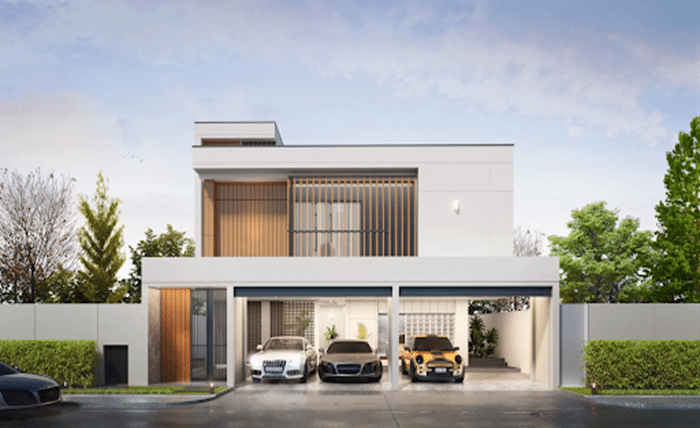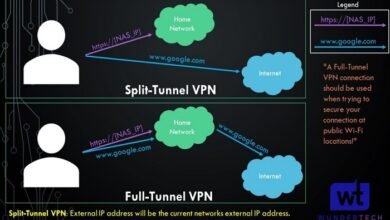Introduction
As we enter 2025, the home construction landscape is changing more rapidly than it has in decades. Emerging Home Building รับสร้างบ้าน Trends in 2025: In foreshadowing a range of radical shifts with the purpose of guiding future narrative which will reshape the design, construction, and experience of living in a home, by innovation, sustainability, and adaptability to changing lifestyles—all are based on drive emerging technology. If you are considering designing and building a new house you should be totally onto these trends because you want your project to be in tune with contemporary expectation and future-proofing objectives. These trends are transforming the way homes are built, and this article discusses the five most impactful trends that can affect your dream build.
Green and Sustainable construction
Even in 2025, sustainability remains a pillar of modern construction. Sustainable building is an approach that is becoming more popular among developers and homeowners who wish to tread light on the environment with a reduced energy footprint.
Net-zero energy homes: These homes produce the same amount of energy that they use from renewable sources such as solar panels and wind turbines.
Eco-friendly building materials: Utilize bamboo, reclaimed wood, or recycled metal to lessen dependence on non-renewable resources.
Water-saving designs: Rainwater harvesting and low-flow fixtures to drought-resistant landscaping are now the standard
It lets you contribute to the environment while enjoying savings on utilities in the long run by building sustainability into your build.
Technology-Driven Smart Homes
They say you can never go home again, but in 2025 smart homes are not a luxury but a necessity. IoT appliances and AI combined improving comfort, productivity, and safety.
Home automation systems: Homeowners can control everything from lighting to climate and security systems through their smartphones or voice assistants.
Energy-efficient appliances: Smart fridges, washing machines, and HVAC systems help reduce energy consumption.
Increased security: AI-based surveillance systems and biometric entry systems offer a level of security.
With an ever-connected world, investing in smart home technology ensures your home is up to date.
Adaptable and Multi-Use Spaces
Adaptability is the demand of modern lifestyles. The homes of 2025 are crafted to cater to a variety of needs and lifestyles.
Home offices: With remote working the new normal, dedicated or hybrid office spaces rank at the top.
Convertible rooms: Movable walls and modular furniture let spaces change from living rooms into guest bedrooms or play areas.
Outdoor living: Patios, balconies and rooftop gardens are made as part of the indoor space for leisure and entertainment.
These daly eclectic designs balance function without sacrificing elegance.
Health-Focused Home Design
Health and wellness in the home haven’t always been a focus for builders, but pandemic living has brought this element to the forefront. Builders are focusing on amenities that support physical and mental health.
Biophilic design: Adding natural elements, such as plants, green spaces and sunlight, to create soothing spaces.
Better air quality: High tech ventilation systems and air purifiers reduce pollutants and allergens.
Wellness amenities: Buyers are seeking homes with gyms, meditation rooms and spa-style bathrooms.
A health-centered graphic design improves homeowner quality of life.
Modern Aesthetics with Minimalism
Image Source: Minimalism remains a trend in home design in 2025, with its emphasis on simple, functional and sustainable designs.
Neutral color palettes: Interiors are awash in soft tones: whites, grays, earth hues.
Clean lines and open layouts: This creates spaciousness and minimizes visual clutter.
Natural materials: The use of stone, wood and metal finishes creates a timeless look that is contemporary yet understated.
Minimalist designs are easier to maintain as well as look good.
Built To Last & Tough Enough For Most Working Environments
Demand for homes that can withstand extreme weather is rising as climate change takes hold. Designs are becoming resilient so they endure and are safe.
Flood-proofing: For houses in flood-prone areas, being elevated, concrete and waterproof membrane materials are often used.
Hurricane and wind-resistant designs: Reinforced walls and roofs protect from hurricanes and violent winds.
Fire-resistant materials: In high-risk areas, non-combustible materials (concrete and steel) and fire-retardant coatings are used.
Such measures also offer peace of mind in securing investments.
Prefabricated and Modular Construction
With the advent of new technology, prefabricated and modular construction methods are radically changing the industry by reducing the time, cost and providing a customized alternative.
3D printing: Homes that are 3D printed save up to 70% in construction time and waste.
Pre-assembled modules – Whole sections of homes are created off-site before being put together on-site, decreasing labor costs and timeframes.
These techniques are especially common for homeowners on a budget who are looking for efficiency.
Conclusion
Emerging Home Building รับสร้างบ้าน Trends in 2025 — A Fundamental Change in How We Build Homes Sustainability and smart technology to flexible spaces and resilient designs, these trends are reshaping the outlook for modern homes. For those planning a new build, keeping a weather eye on these developments will help to ensure that your home meets modern demands and will remain relevant well into the future.
When it is time to go from Concept to Development, Gritbuild Company will be ready to help. Our experts will walk you through the entire process with modern construction techniques and a commitment to quality. Check out Gritbuild today and let’s revolutionize your home’s future, together.





